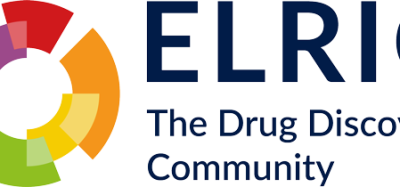International Day for Women and Girls in Science: Denise Bowser
Posted: 12 February 2024 | Denise Bowser (Onyx), Taylor Mixides (Drug Target Review) | No comments yet
The International Day for Women and Girls in Science: we have the privilege of engaging with Denise Bowser, a distinguished figure with a remarkable journey at Onyx Scientific.
Join us as we explore Denise’s experiences, the milestones and challenges she has encountered while navigating the dynamic landscape of the pharmaceutical industry. Through her insights, we gain valuable perspectives on leadership, gender diversity, and the transformative potential of women in STEM.


Denise, could you share some insights into your journey at Onyx Scientific, highlighting key milestones and challenges you’ve faced during your nearly 25 years with the company?
At the turn of the millennium in early 2000, I was approached by the founders of Onyx Scientific to join the company as their Business Development Manager. I considered this to be an exciting opportunity and became part of the original team that established the company.
Being involved in a startup was challenging at the best of times, as we didn’t have traction in the industry. However, through developing relationships with potential clients we grew organically as a company. Communication was key – you can have the best technical team in the world, but without the right exposure they remain undiscovered, and it was important to get the message out there.
I became a Director in 2005, responsible for the business’s continued growth from 7 initial founding members to 110 employees today. In 2007, I was involved in a ‘management buy-in’, before selling the company to Ipca Laboratories in 2011.
It’s been quite the journey, but very rewarding, employing hundreds of scientists in the North East of England.
Since the acquisition by Ipca, we have continued with the growth of the company, opening a new manufacturing facility, and expanding the facility by 50 percent in 2021, alongside being accredited by the MHRA to manufacture commercial APIs for low-volume requirements.
We also bought (along with Ipca) a manufacturing facility Pisgah Inc. in North Carolina, giving us a USA presence.
As a woman who has excelled in the pharmaceutical industry, what do you believe are the main barriers that women face in leadership roles within STEM fields, and how can these barriers be overcome?
When I joined the pharma industry over 25 years ago, it was very male-dominated, and thankfully, I have seen that change over the years. More and more women are now doing sciences and rising through the ranks to carry out senior leadership roles. I think it is difficult to juggle family and work life at a senior level and whilst it is possible, I chose to focus on my career. The increase in flexible working conditions has a part to play in managing this balance.
Often, I have been the only female in BOD meetings, but you can stand out and use this positively to your advantage. I can often take a different approach & mediate different opinions to agree on a way forward with key decisions
My most recent challenge has been associated with the dreaded menopause, it’s not easy to cope with many of the symptoms in a leadership role. My advice would be to keep talking about this subject with your colleagues openly and honestly to help them understand the challenges you face daily.
The International Day of Women and Girls in Science aims to celebrate the achievements of women in STEM. In your opinion, how can we encourage more young girls to pursue careers in science and technology, and what role can industry leaders play in this effort?
The obvious starting point is in the education system, breaking down the barriers and rethinking the outdated idea that science is a predominantly ‘male subject’. As it gives so many vocational opportunities, education around these possibilities is a must, ensuring awareness of the career potential and pathways that are available to all for a fulfilling and worthwhile career. At Onyx Scientific, we have personally donated to a number of STEM programmes and actively engaged with the university career departments to help counter this perception.
Onyx Scientific has experienced significant growth during your tenure, expanding both globally and in terms of services and capacity. How has your leadership played a role in driving the company’s commercial activities and contributing to its success?
A leader is not about telling people what to do, but about bringing out the best in people and nurturing relationships. In the science industry trust is critical to the success of the company, building this with both colleagues and clients leads to long-term partnerships. Being driven is a must, but consideration of others ensures that you are in a better place to get the balance right.
About the author


Founding member of Onyx
Denise started her career as a Development Chemist at ChiRex, therefore has an understanding of the technical challenges of the industry. Following this role Denise moved into a Product Manager position, enhancing key account management skills. Denise joined Onyx as Business Development Manager in 2000, responsible for bringing in new business & ultimately the growth of Onyx from day one. In her role as Commercial Director, Denise is responsible for the commercial operations of Onyx ensuring continued growth and ensuring a high service level for our clients.
Related topics
Drug Delivery, Drug Development, Drug Discovery Processes, Targets
Related organisations
Onyx Pharmaceuticals
Related people
Denise Bowser (Onyx)








